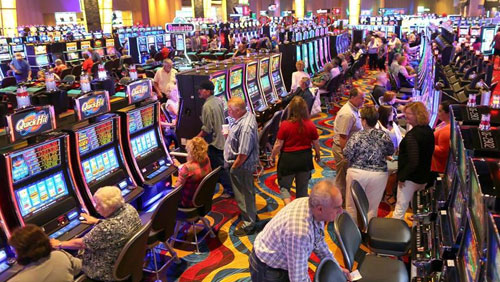 News on Massachusetts casinos never stop. So here’s the latest for today.
News on Massachusetts casinos never stop. So here’s the latest for today.
Plainridge Park Casino, the only gaming facility open in the state for now, saw its revenue drop to $12.6m in September from the $15.2m it generated in August.
After a strong opening in June, its profit has been falling with each passing month.
According to Lance George, the casino’s vice president and general manager, this trend was consistent with other property openings that had a similar strong first couple of weeks, adding that “the numbers settle over the first few months” and then they “ramp back up to a more normalized run rate as your marketing takes hold.”
George also pointed out that September has always been a slower month than August and the 17% drop in revenues was far from surprising.
Plainridge Park Casino pays 49% tax to the state, of which 82% goes to cities and towns for local aid and 18% goes to a horse racing development fund. The state collected about $5 million in taxes from Plainridge in September, down from $6 million in August and $7.2 million in July.
Wynn Resorts wins!
A superior court judge has handed Wynn Resorts a key legal victory, ruling a group of taxpayers didn’t have legal standing to challenge the sale of 1.8 acres of Massachusetts Bay Transportation Authority (MBTA) land to Wynn for about $6 million.
Suffolk Superior Court Judge Janet Sanders wrote that the group didn’t technically have grounds to bring the lawsuit, which it filed in July, because the sale isn’t directly costing taxpayers money. Sanders dismissed the argument that selling the 1.7 acres of land would force the taxpayers to spend money to relocate services, thus prompting potential fare or tax increases.
Sanders added that the argument was “too speculative and hypothetical,” and noted that the specific terms of the deal “do not require the MBTA to expend money or to assume any obligations.”